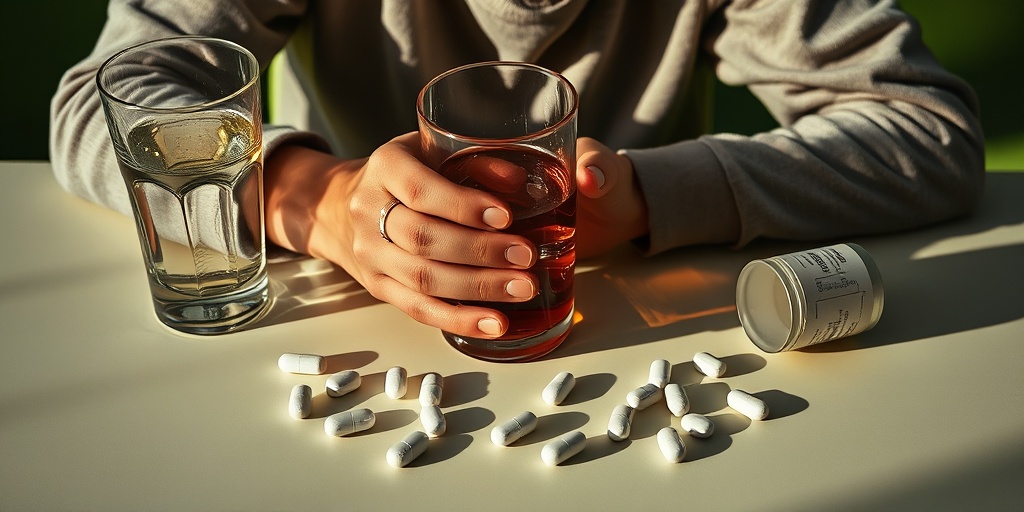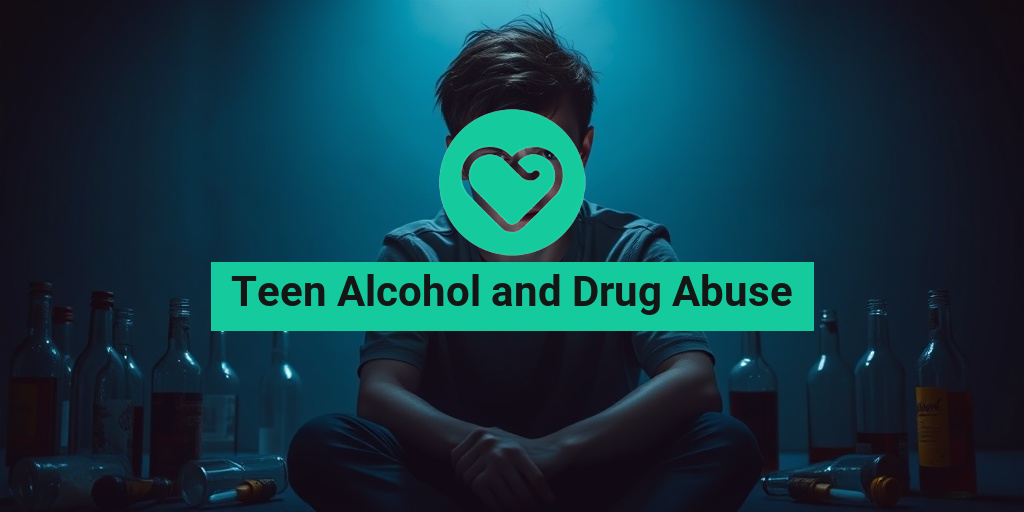What Is Teen Substance Abuse?
Teen substance abuse refers to the harmful or hazardous use of psychoactive substances, including alcohol and illicit drugs, by individuals aged between 12 and 18 years. This issue is a growing concern worldwide, as it can lead to severe physical, emotional, and social consequences. Understanding what constitutes substance abuse is crucial for parents, educators, and teens themselves to recognize the signs and seek help when necessary.
The Scope of the Problem
According to various studies, a significant percentage of teenagers experiment with alcohol and drugs during their adolescent years. This experimentation can escalate into abuse, leading to addiction and a host of other problems. The reasons behind teen substance abuse are complex and can include:
- Peer Pressure: Many teens feel compelled to fit in with their peers, leading them to try substances.
- Emotional Distress: Issues such as anxiety, depression, or trauma can drive teens to seek relief through substances.
- Curiosity: The desire to explore and experience new things can lead to experimentation with drugs and alcohol.
- Family Influence: A family history of substance abuse can increase the likelihood of a teen engaging in similar behaviors.
Understanding these factors is essential for prevention and intervention strategies. Programs like the Youth Alcohol and Drug Abuse Prevention Project aim to educate teens about the risks associated with substance use and provide them with the tools to make healthier choices.
Consequences of Substance Abuse
The consequences of teen alcohol and drug abuse can be devastating. They can affect a teen’s physical health, mental well-being, and social relationships. Some potential outcomes include:
- Academic Decline: Substance abuse can lead to poor academic performance and increased dropout rates.
- Legal Issues: Engaging in illegal drug use can result in legal consequences, including arrest and incarceration.
- Health Problems: Long-term substance abuse can lead to chronic health issues, including liver damage, respiratory problems, and mental health disorders.
- Relationship Strain: Substance abuse can damage relationships with family and friends, leading to isolation and loneliness.
Recognizing the signs of substance abuse early can help mitigate these consequences and guide teens toward recovery and healthier lifestyles.
Signs of Alcohol and Drug Abuse
Identifying the signs of alcohol and drug abuse in teens can be challenging, especially since many behaviors can be attributed to typical adolescent development. However, certain indicators can signal a problem. Here are some common signs to watch for:
Behavioral Changes
One of the most noticeable signs of substance abuse is a change in behavior. This can include:
- Withdrawal from Activities: If a teen suddenly loses interest in hobbies, sports, or socializing, it may indicate substance use.
- Secretive Behavior: Increased secrecy about their activities or friendships can be a red flag.
- Declining Academic Performance: A drop in grades or lack of motivation to complete schoolwork can signal substance abuse.
Physical Signs
Physical indicators can also provide clues about a teen’s substance use. Look for:
- Changes in Appearance: Neglecting personal hygiene or a sudden change in style can be a sign.
- Bloodshot Eyes: Frequent red or glassy eyes may indicate alcohol or drug use.
- Unusual Smells: The smell of alcohol or drugs on their breath or clothing can be a clear indicator.
Emotional and Mental Health Signs
Substance abuse often affects a teen’s emotional and mental health. Signs to watch for include:
- Increased Irritability: Mood swings or increased irritability can be a sign of substance use.
- Depression or Anxiety: A sudden onset of depression or anxiety can be linked to substance abuse.
- Paranoia: Unexplained feelings of paranoia or anxiety can indicate drug use.
If you suspect that a teen is struggling with alcohol or drug abuse, it’s essential to approach the situation with care and compassion. Open communication can help them feel supported and understood, making it easier for them to seek help.
For more information and resources on teen alcohol and drug abuse, consider visiting Yesil Health AI, where you can find evidence-based health answers and support.
In conclusion, recognizing the signs of teen substance abuse is crucial for early intervention. By understanding the problem and being vigilant, we can help guide our youth toward healthier choices and brighter futures. 🌟

Causes of Substance Abuse in Teens
Understanding the causes of substance abuse in teens is crucial for prevention and intervention. Adolescence is a tumultuous time filled with changes, challenges, and pressures that can lead some teens to experiment with alcohol and drugs. Here are some of the primary causes:
Peer Pressure
One of the most significant factors influencing teen substance abuse is peer pressure. Teens often feel the need to fit in with their friends, and this can lead them to try alcohol or drugs, even if they initially have reservations. The desire to be accepted can overshadow their better judgment.
Family Environment
The family plays a pivotal role in shaping a teen’s attitudes towards substance use. A family history of substance abuse can increase the likelihood of a teen engaging in similar behaviors. Additionally, a lack of parental supervision or a dysfunctional family environment can create a breeding ground for substance abuse.
Emotional and Mental Health Issues
Many teens struggle with emotional and mental health issues such as anxiety, depression, or low self-esteem. These challenges can lead them to seek relief through alcohol or drugs. Substance use may initially seem like a coping mechanism, but it often exacerbates their problems in the long run.
Curiosity and Experimentation
Adolescence is a time of exploration and curiosity. Many teens are naturally inclined to experiment with new experiences, including alcohol and drugs. This experimentation can quickly spiral into abuse, especially if they are unaware of the potential consequences.
Media Influence
Media portrayal of alcohol and drug use can glamorize these substances, making them seem appealing to teens. Movies, music, and social media often depict substance use as a normal part of life, which can influence teens to engage in similar behaviors without understanding the risks involved.
Stress and Coping Mechanisms
Academic pressures, social challenges, and family issues can create significant stress for teens. Some may turn to substance use as a coping mechanism to escape their problems. Unfortunately, this can lead to a cycle of dependency that is hard to break.
Risk Factors for Teen Substance Abuse
Identifying the risk factors for teen substance abuse can help parents, educators, and communities develop effective prevention strategies. Here are some key risk factors to consider:
Age and Developmental Stage
Teens are at a higher risk for substance abuse due to the developmental changes they experience. The adolescent brain is still maturing, particularly in areas related to decision-making and impulse control, making them more susceptible to risky behaviors.
Social Environment
The social environment, including friends and community, plays a significant role in a teen’s likelihood of substance abuse. Teens who associate with peers who use drugs or alcohol are more likely to engage in similar behaviors themselves. Community norms regarding substance use can also influence their choices.
Academic Performance
Struggling academically can lead to feelings of inadequacy and frustration, which may push some teens towards substance use as a form of escape. Conversely, high-achieving teens may also feel pressure to perform, leading them to use substances to cope with stress.
Access to Substances
Easy access to alcohol and drugs significantly increases the risk of abuse. Teens who have friends or family members who use substances are more likely to try them themselves. Availability can be a critical factor in whether a teen engages in substance use.
Trauma and Adverse Childhood Experiences
Experiencing trauma or adverse childhood experiences (ACEs) can have lasting effects on a teen’s mental health and increase the risk of substance abuse. Teens who have faced abuse, neglect, or significant loss may turn to drugs or alcohol as a way to cope with their pain.
Low Self-Esteem
Teens with low self-esteem may seek validation through substance use, believing that it will help them fit in or feel better about themselves. This can create a dangerous cycle where they rely on substances to boost their confidence, leading to further abuse.
By understanding the causes and risk factors associated with teen alcohol and drug abuse, we can better equip ourselves to support at-risk youth and promote healthier choices. Awareness and education are key in combating this pressing issue. 🌟

Impact on Mental Health
Teen alcohol and drug abuse is a pressing issue that significantly affects the mental health of young individuals. The teenage years are a critical period for emotional and psychological development, and substance abuse can lead to a myriad of mental health challenges.
Understanding the Connection
Research indicates that there is a strong correlation between substance abuse and mental health disorders. Teens who engage in alcohol and drug use are at a higher risk of developing conditions such as:
- Depression: Substance abuse can exacerbate feelings of sadness and hopelessness, leading to severe depressive episodes.
- Anxiety Disorders: Many teens turn to drugs or alcohol as a coping mechanism for anxiety, which can ultimately worsen their symptoms.
- ADHD and Behavioral Issues: Substance use can interfere with attention and impulse control, making existing behavioral issues more pronounced.
Moreover, the use of alcohol and drugs can alter brain chemistry, impacting mood regulation and emotional stability. This can create a vicious cycle where mental health issues lead to substance use, which in turn exacerbates mental health problems.
Long-Term Consequences
The long-term effects of teen alcohol and drug abuse on mental health can be devastating. Some potential consequences include:
- Increased Risk of Addiction: Early exposure to substances can lead to a higher likelihood of developing substance use disorders in adulthood.
- Social Isolation: Teens struggling with substance abuse may withdraw from friends and family, leading to loneliness and further mental health decline.
- Academic Challenges: Substance abuse can impair cognitive functions, resulting in poor academic performance and reduced future opportunities.
Understanding these impacts is crucial for parents, educators, and communities to address the issue effectively. By recognizing the signs of mental health struggles related to substance abuse, we can intervene early and provide the necessary support.
Prevention Strategies
Preventing teen alcohol and drug abuse requires a multifaceted approach that involves families, schools, and communities. Here are some effective strategies to consider:
Education and Awareness
One of the most powerful tools in preventing substance abuse is education. Teens need to be informed about the risks associated with alcohol and drug use. Programs that focus on:
- Health Risks: Teaching teens about the physical and mental health consequences of substance abuse can deter them from trying drugs or alcohol.
- Decision-Making Skills: Empowering teens with skills to make informed choices can help them resist peer pressure.
Schools can implement comprehensive health education programs that include discussions about the dangers of underage alcohol and drug use. Engaging parents in these conversations is equally important, as they play a pivotal role in shaping their children’s attitudes towards substances.
Building Strong Relationships
Strong, supportive relationships can act as a protective factor against substance abuse. Parents and caregivers should strive to:
- Communicate Openly: Encourage open dialogue about feelings, experiences, and the pressures teens face. This can help them feel understood and supported.
- Be Involved: Participate in your teen’s life by attending school events, knowing their friends, and being aware of their activities.
When teens feel connected to their families and communities, they are less likely to engage in risky behaviors, including substance abuse.
Promoting Healthy Activities
Encouraging teens to participate in healthy activities can provide them with positive outlets for stress and anxiety. Consider the following:
- Sports and Physical Activities: Engaging in sports can boost self-esteem and provide a sense of belonging.
- Arts and Creative Pursuits: Activities like music, painting, or writing can serve as effective emotional outlets.
By promoting a balanced lifestyle filled with healthy activities, teens can develop resilience against the temptations of alcohol and drug use.
Community Support Programs
Communities can play a vital role in preventing teen alcohol and drug abuse through various support programs. Initiatives such as:
- After-School Programs: Providing safe spaces for teens to engage in constructive activities can reduce the likelihood of substance use.
- Peer Support Groups: Creating environments where teens can share their experiences and challenges can foster a sense of community and belonging.
By working together, families, schools, and communities can create a supportive network that helps prevent teen alcohol and drug abuse, ultimately leading to healthier futures for our youth. 🌟

Treatment Options for Teens
When it comes to teen alcohol and drug abuse, early intervention is crucial. The earlier a teen receives help, the better their chances of recovery. Fortunately, there are various treatment options available that cater specifically to the needs of adolescents. Understanding these options can empower families and friends to make informed decisions.
1. Outpatient Treatment Programs
Outpatient treatment programs allow teens to receive care while continuing with their daily lives, such as attending school and participating in extracurricular activities. These programs typically include:
- Individual Therapy: One-on-one sessions with a licensed therapist to address personal issues related to substance abuse.
- Group Therapy: Sessions with peers facing similar challenges, providing a supportive environment for sharing experiences.
- Family Therapy: Involving family members in the treatment process to improve communication and resolve conflicts.
Outpatient programs are often less intensive than inpatient options, making them suitable for teens with less severe substance use issues.
2. Inpatient Treatment Programs
For teens struggling with severe addiction, inpatient treatment may be necessary. This type of program provides a structured environment where teens can focus solely on their recovery. Key features include:
- 24/7 Supervision: Constant support from medical professionals and counselors.
- Comprehensive Care: A combination of medical treatment, therapy, and educational support.
- Safe Environment: A drug-free setting that minimizes the risk of relapse.
Inpatient programs can last anywhere from a few weeks to several months, depending on the individual’s needs.
3. Behavioral Therapies
Behavioral therapies are essential components of treatment for teen alcohol and drug abuse. These therapies help teens understand the underlying issues contributing to their substance use and develop coping strategies. Common approaches include:
- Cognitive Behavioral Therapy (CBT): Focuses on changing negative thought patterns and behaviors.
- Motivational Interviewing: Encourages teens to find their motivation for change.
- Contingency Management: Provides rewards for positive behaviors, such as staying sober.
These therapies can be integrated into both outpatient and inpatient programs, ensuring a comprehensive approach to recovery.
4. Support Groups
Support groups, such as Alcoholics Anonymous (AA) and Narcotics Anonymous (NA), offer a community of individuals who understand the struggles of addiction. These groups provide a safe space for teens to share their experiences and learn from others. Benefits of support groups include:
- Peer Support: Connecting with others who have faced similar challenges.
- Accountability: Encouraging commitment to sobriety through shared goals.
- Ongoing Support: Providing resources and encouragement long after formal treatment ends.
Support for Families and Friends
Supporting a teen struggling with alcohol and drug abuse can be emotionally taxing for families and friends. However, it’s essential to remember that they are not alone in this journey. Here are some ways to provide support:
1. Educate Yourself
Understanding the nature of addiction and its effects on teens can help families and friends respond more effectively. Resources such as books, online articles, and support groups can provide valuable insights into the challenges of substance abuse.
2. Open Communication
Encouraging open and honest conversations about substance use can help teens feel safe discussing their struggles. Here are some tips for effective communication:
- Listen Actively: Show empathy and understanding without judgment.
- Avoid Blame: Focus on the behavior rather than labeling the teen as an addict.
- Be Supportive: Offer help and encouragement rather than ultimatums.
3. Seek Professional Help
Families may benefit from seeking professional guidance, such as family therapy or counseling. A trained therapist can help families navigate the complexities of addiction and improve communication dynamics.
4. Establish Boundaries
While it’s important to support a teen in recovery, establishing healthy boundaries is equally crucial. This may involve:
- Setting Clear Expectations: Discussing acceptable behaviors and consequences.
- Encouraging Independence: Allowing the teen to take responsibility for their recovery.
- Taking Care of Yourself: Prioritizing self-care to maintain your own mental health.
By providing a supportive environment and encouraging open dialogue, families and friends can play a vital role in a teen’s recovery journey. Remember, recovery is a process, and every step taken is a step towards a healthier future. 🌟

Frequently Asked Questions about Teen Alcohol and Drug Abuse
What are the signs of alcohol and drug abuse in teens?
Recognizing the signs of teen alcohol and drug abuse is crucial for early intervention. Common indicators include:
- Changes in behavior or mood
- Declining academic performance
- Withdrawal from family and friends
- Physical changes, such as weight loss or poor hygiene
- Legal issues related to substance use
How can parents prevent underage alcohol and drug use?
Parents play a vital role in preventing underage alcohol and drug use. Here are some effective strategies:
- Open communication about the risks of substance abuse
- Setting clear expectations and rules regarding alcohol and drug use
- Encouraging participation in healthy activities and hobbies
- Being a positive role model by avoiding substance abuse
What resources are available for teens struggling with substance abuse?
There are numerous resources available for teens facing alcohol and drug abuse issues, including:
- School counseling services
- Local youth support groups
- Substance abuse treatment centers
- Hotlines for immediate assistance
How can friends help a teen dealing with substance abuse?
If you have a friend who is struggling with teen alcohol and drug abuse, consider the following ways to help:
- Encourage them to talk about their feelings and experiences
- Support them in seeking professional help
- Be there for them without judgment
- Engage in positive activities together to distract from substance use
What are the long-term effects of alcohol and drug abuse on teens?
The long-term effects of teen alcohol and drug abuse can be severe and may include:
- Development of mental health disorders
- Increased risk of addiction in adulthood
- Academic and career challenges
- Legal problems and criminal records
Where can I find more information on youth alcohol and drug abuse prevention?
For more information on youth alcohol and drug abuse prevention, consider visiting:
- National Institute on Drug Abuse (NIDA)
- Substance Abuse and Mental Health Services Administration (SAMHSA)
- Local community health organizations
What should I do if I suspect a friend is using drugs or alcohol?
If you suspect a friend is engaging in alcohol and drug abuse, it’s important to approach the situation with care. Here are some steps you can take:
- Talk to them privately and express your concerns
- Encourage them to seek help from a trusted adult or professional
- Offer your support and understanding
Is there a connection between mental health and substance abuse in teens?
Yes, there is a significant connection between mental health and teen alcohol and drug abuse. Many teens may use substances as a way to cope with:
- Anxiety and depression
- Stress and trauma
- Low self-esteem
Addressing mental health issues is crucial in preventing substance abuse.
How can schools contribute to preventing teen substance abuse?
Schools can play a pivotal role in preventing teen alcohol and drug abuse by:
- Implementing educational programs about the dangers of substance use
- Providing access to counseling and support services
- Creating a safe and supportive environment for students




